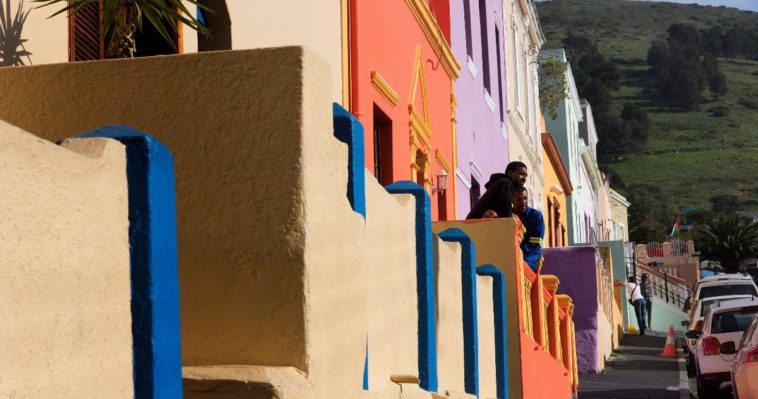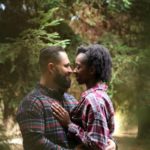h2>Dating : When You Hear, ‘Sorry, But I Don’t Date Across Racial Lines’
In Cape Town, gay men gave me a crash course in racism
As I sat across from my new American acquaintance in a Cape Town bar, I felt uneasy. I had nothing significant to contribute to our conversation about sex and the city.
Like me, Elliot was a Black expat living in South Africa. He had asked about my impression of dating in the country’s number-one party town — and for the first time in our conversation, I was silent.
I’d lived in Cape Town for several weeks at the time, and I still hadn’t ventured out much on the social scene. I’d gone on exactly one Grindr date, with a guy named Jacques, who invited a friend to join us. The friend turned out to be Elliot.
When Jacques sprang the news on me after I arrived at our table in a beachside restaurant, I was a little disappointed. I thought we were on a date date. As it turned out, though, the interloper ended up being the best part of our Grindr liaison. I only saw Jacques one more time, but Elliot and I became good friends and regularly hung out during the year I lived in Cape Town.
Through Elliot, I vicariously had my most egregious encounters with racism in South Africa. The stories may have been secondhand, but that didn’t make them any less gut-punching. When Elliot showed me the screengrab of a terse Grindr conversation he’d had with a 31-year-old White guy in a graphic T-shirt with a photo of a Native American chief on the front, who called himself “Wild fun,” I almost fell off my seat.
It went like this:
Elliot: How’s it going?
Wild fun: Fuck off, Darkie.
Then there was another Grindr conversation Elliot showed me the second time we met up. In this one, he had approached a shirtless White piece of beefcake who appeared to be in the shower. Elliot began the exchange with his own shirtless photo a simple “Howsit?”
The second sentence of the guy’s three-sentence response sent a chill down my spine:
I’m sorry, but I don’t cross racial lines in dating.
He came across as a well-educated bigot. I’d encountered plenty of those, though I’d never been rejected by a guy who specifically offered my race as the reason.
I was as disarmed by his perfect punctuation as I was by the declaration it had been wasted on. He simply could have ignored Elliot’s message or offered a vague “not interested.”
Despite the formal tone, there was a certain level of hostility in his message. He came across as a well-educated bigot. I’d encountered plenty, though I’d never been rejected by a guy who specifically offered my race as the reason.
Elliot gave me a crash course on racism in Cape Town, but apparently, he hadn’t learned the lesson my Zimbabwean friend Donald had taught me: Donald and his Black friends refused to date White men at all. To pursue them was to risk being not only rejected but degraded as well. Sexual apartheid on their terms was in their best interest.
I was surprised because, for all of its tortured racial history, South Africa had impressed me as being somewhat more progressive than the U.S. when it came to race. Despite the country being just a few decades removed from apartheid, race relations seemed to have come so much further than they had in the U.S. more than a century after slavery.
It took South Africa only four years after institutional racial segregation began to formally crumble in 1990 to elect its first Black president, Nelson Mandela. The U.S. wouldn’t have a Black president until nearly 150 years after the end of the Civil War.
While I did notice lingering social apartheid throughout the city that often relegated Blacks and Whites to separate corners, the tension didn’t seem as openly fraught as it did in the U.S. But Elliot kept presenting Grindr evidence that proved things were not necessarily what they appeared to be. While allowing gay men to hide behind fakery, Grindr also had the effect of making them more brutally honest, often to a fault.
Maybe the modern White, American gay guy who refused to go Black also wouldn’t have any qualms about bluntly saying so. I’d never used Grindr in the U.S., so I had no personal experience. Could “I don’t cross racial lines” be a delicate way of doing it without getting too specific and bogged down in “Black” and “White,” sort of like subbing “fun” for “sex”?
Elliot shot down that theory. He pointed out that this response was uniquely South African because it had the lingering thumbprint of apartheid all over it. It wasn’t just a personal choice, nor was it personal — not exactly.
It was a cold, clinical reflection of the institutionalized racism and segregation that defined South African society for decades. The Grindr guy hadn’t said “I’m not attracted to Black guys” or “I don’t date Black guys” — the sorts of responses you’d hear from a White American. His specific wording (without being specific at all) seemed to imply that it wasn’t just about preference or attraction, but rather adherence to a long-standing principle. In his dating world, the events of the early ’90s in South Africa hadn’t changed a thing. It might as well have still been 1984.
Elliot had seen and read it all before. I thought I had, too, but this response was a first for me. For the most part, my most memorable and fulfilling encounters with gay men in Cape Town would end up being with gay Black men. I didn’t cut off everyone else the way Donald and his Zimbabwean friends had, but when I approached gay White men, I proceeded with extreme caution, if I proceeded at all.
I didn’t need any ugliness ruining all of Cape Town’s breathtaking views.




